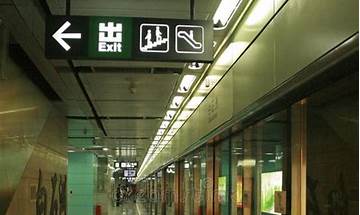The man's high-speed rail was rejected for touching porcelain and rubbing rice. Conductor: 60 of us know you.

Foreword:
Recently, a middle-aged male passenger could not bear an empty stomach because of hypoglycemia, and asked the conductor for a box lunch.
I thought the conductor would respond positively, but I didn't think the conductor replied indifferently, "If you want to have a meal, you can go to the dining car."
After hearing the conductor's reply, the male passenger insisted on eating in his seat and claimed that he had relevant medical records. "I can show you my case."
Nevertheless, the conductor refused his request.
Why would the train conductor be so cruel to refuse a poor sick person? Or is there something else?
High-speed rail lunch box incident
A kind aunt witnessed it on the high-speed rail, and she noticed that he really had nothing to eat. So, she decided to give a helping hand and shouted to the conductor: "Girl, I have bread here, please bring him one to eat!" "
After hearing the aunt's request, the conductor went to the male passenger's seat. However, the male passenger said with disgust: "Bread won't do! I don't want it. "Aunt was very confused about this sentence.
"Why can't bread work?" The kind aunt could not help but ask.
At this time, the train conductor went to the driveway and said to the kind aunt, "People like him don't need it at all. Aunt, keep it yourself and leave it alone."
Why didn't the conductor want to help the poor sick man himself, and didn't he let his aunt help him? What exactly is the matter?
The beginning of the matter is like this. Ms. Du has been working on this high-speed rail for a long time. She has been working hard all the time. Because of her professionalism and outstanding performance, she was successfully promoted to train conductor.
During her train career, Ms. Du met all kinds of people, and everyone had their own unique stories. However, one passenger left a very, very deep impression on her.
She still remembers the first time she met this male passenger. At that time, she passed a carriage with a working meal in her hand, and the male passenger suddenly stopped her.
At that time, the male passenger was sitting on the train and his stomach was growling with hunger. He looked around and suddenly saw Ms. Du next to the conveyor belt, wondering if she could provide a box lunch, and then began to pretend that she was very uncomfortable.
Ms. Du was puzzled at first, but when she saw the male passenger's face was very painful, it seemed that there was something unexpected. So, she quickly stepped forward and asked the male passenger if he needed help. "What's wrong with you, sir?" She asked doubtfully.
The male passenger bowed his head and was silent for a moment, then raised his head with tears in his eyes. "I'm sorry to bother you. I'm just a little hypoglycemia. "His voice was a little painful.
Then the male passenger looked at the working meal in her hand again: "I want the working meal in your hand. Can you give it to me?" Ms. Du is very embarrassed, because the high-speed train doesn't agree to eat working meals. If you want to eat, you can only eat in the dining area. So Ms. Du said, "Sir, if you eat first, you can go to our dining area to buy it. It is not agreed on the train."
The male passenger shook his head and said that he was too weak to go to the dining car. I hope Ms. Du can bring the box lunch to him.
Ms. Du couldn't beat him, so she went to the train conductor. The train conductor came to see that the male passenger really seemed to be very uncomfortable, so she approved it once.
The result was out of control, and the male passengers were pushing their luck more and more. Every time they came, they used the same trick. Later, Ms. Du was promoted to be the train conductor, and the male passengers still went their own way, using his usual routine.
Then the opening scene happened, and the train conductor refused to provide something for his male passengers. And this male passenger also forced Ms. Du to say directly: "At least 60 of the 100 train conductors know you."
Ceng fan da ren
This information was uploaded to the internet and caused widespread concern.
The passenger was nicknamed "a glutton" by netizens. He often chose to take the high-speed train and tried to hunt for free food and drinks from the conductor in various ways.
He has established a very special "relationship" with the train conductor and the conductor, and he has almost become an "old acquaintance", which makes people feel surprised.
Many people are puzzled and puzzled by the behavior of this "glutton". They think that gluttony and gluttony is a very immoral and illegal behavior and is blamed in society.
However, the passenger walked on the high-speed rail without scruple, and looked for every opportunity to get free food and drinks, and carried this behavior to the end. His courage and determination are beyond comprehension.
Although it is understandable that some people may take some unconventional or improper ways out of the need of food and clothing in a difficult situation. But this practice of eating to fill your stomach is really embarrassing.
And what adverse effects will his actions have on society?
As a social body, we should strive to find a more suitable way to solve our predicament, rather than achieve our goal by breaking the law or even harming others.
Moreover, this male passenger's practice may not bring much loss to others, but it has brought a bad ride experience to many passengers. These behaviors also destroyed the riding atmosphere and public order to some extent.
Fortunately, the conductor stopped these behaviors in time and safeguarded the interests of other passengers. Without their intervention, the male passenger may cheat and consume the love and sympathy of others, and have some adverse effects.
On public transport, we should abide by the basic public morality and moral norms. However, some people choose to ignore these norms, which brings a lot of inconvenience and trouble to other passengers.
For example, during a train ride home, a passenger noticed a male passenger playing music loudly and refused to wear headphones. His music is so loud that it fills the whole carriage, so that others can't rest quietly or concentrate on their own affairs.
The journey was tiring enough, and the behavior of the male passenger made the whole atmosphere unfriendly and noisy.
The behavior of this male passenger does not stop at playing music. He also called loudly, discussed some unimportant things with his friends, and gave out high-decibel laughter from time to time.
Such a move not only interferes with the rest of others, but also destroys the silence in the carriage. Passengers can't concentrate on their reading, work or rest, but have to be in the carnival atmosphere of this male passenger. Fortunately, the flight attendants stopped their behavior, which made us have a good journey experience.
Without the intervention of the conductor, the male passenger may continue to ignore the feelings of others and continue to interfere with the tranquility of the carriage. He may misunderstand the tolerance of other passengers for his behavior, thus gradually increasing the degree of his misconduct.
To make matters worse, as passengers, we may be infected by his behavior, gradually lose our criticism and blame for him, and even come with him to bother others.
However, fortunately, this is not the case, because the conductor's timely stop and actions to safeguard the interests of other passengers ensure the public order and riding atmosphere in the carriage.
Their duty is to ensure the travel experience and rights of every passenger, and their efforts need to be recognized and appreciated by us.
Only in this way can we jointly create a harmonious and quiet riding environment and bring all passengers a comfortable and pleasant journey.
Interpretation by case
Speaking of this, we also need to give you some knowledge about the law, so that we can take this as a warning or use the law as a weapon to protect ourselves.
In fact, not giving money for eating generally does not constitute a criminal offence. However, if public places make trouble, it may be suspected of constituting the crime of stirring up trouble.
According to the provisions of Article 293 of the Criminal Law, whoever commits one of the following acts of provoking troubles and disrupting social order shall be sentenced to fixed-term imprisonment of not more than five years, criminal detention or public surveillance:
1. Committing violence, fighting in public places, or harming personal or property safety by other means;
2. Gathering people to disturb social order and hinder normal public order management activities;
3. Disrupting order on public transport, government offices, schools, shops, restaurants, theaters, gymnasiums, exhibition halls or other public places;
Four, intentionally carrying explosives, toxic, radioactive, infectious diseases and other dangerous goods in public places, causing danger;
5. Disrupting social order by spreading false information.
Therefore, if a person doesn't pay the bill after eating in a restaurant, and acts as a troublemaker, he may have committed the crime of stirring up trouble. Of course, whether it constitutes a crime still needs to be decided according to the specific circumstances.
It should be noted that the affray in public places mentioned here is suspected to constitute the crime of seeking trouble, mainly considering its destruction and damage to social order. However, if you just don't give money to eat and don't commit other acts that disturb the order, it will generally not be recognized as a criminal offence, but a civil dispute that needs to be resolved through legal channels.
However, according to Article 68 of People's Republic of China (PRC) Railway Law: "Passengers who take railway trains should abide by the regulations on railway transportation safety management and obey the management of railway transportation enterprise staff."
This regulation is formulated to ensure the safety of railway ride and maintain the standardized operation order.
In the railway law, the responsibilities and obligations of passengers when taking railway trains are clearly defined. As passengers, passengers must abide by the relevant safety regulations when using railway traffic services, and must not violate the order on the train or harm the legitimate rights and interests of others.
In addition, passengers have to obey the management of the staff of railway transport enterprises and carry out the instructions and requirements of train attendants or other staff.
If the passenger violates the above regulations, it may bring losses or harm to the conductor or other passengers.
For example, passengers occupying other people's seats on the train without authorization and refusing to accept the advice or instructions of the conductor will cause others to be unable to sit down or further conflict. Or passengers cross the safety isolation door area on the train, causing unnecessary risks and potential safety hazards.
For these passengers who violate the regulations, according to the relevant provisions of the People's Republic of China (PRC) Railway Law, they may have to bear corresponding legal responsibilities.
Conclusion:
Specific legal responsibilities include but are not limited to: those who persist in violating the rules after being dissuaded by the conductor may be ordered to get off the bus or be fined accordingly; If violations cause conflicts or cause injuries to others, they may also face criminal responsibility.
Therefore, in the future journey, as passengers, we should always abide by the rules of public transportation and respect the feelings and needs of others. If we witness similar misconduct, we should also promptly remind and report the relevant staff.
What do readers think of this? Welcome to leave a message in the comment area below to discuss with the author. Finally, don't forget to like it and forward it.
Declaration: All article resources on this website, unless otherwise specified or labeled, are collected from online resources. If the content on this website infringes on the legitimate rights and interests of the original author, you can contact this website to delete it.






